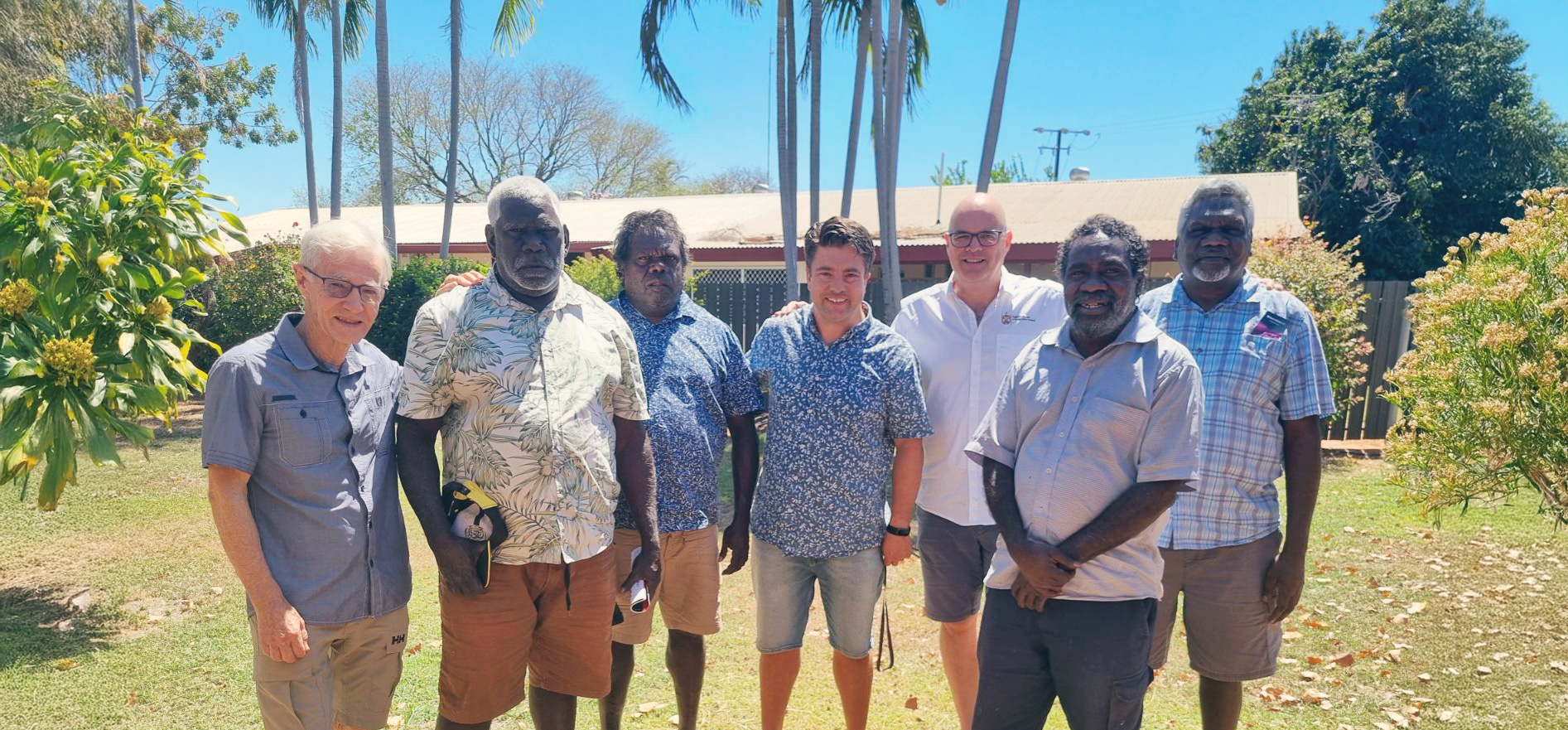The lifestyle factor: relatively free mission agents
Ex-CMS missionary Greg Anderson is now bishop of the Northern Territory. In this, the fourth of six articles on humility in mission, Greg writes about some of the difficulties associated with politeness and cultural norms, and dealing with these as a Christian and as a missionary.
Article One is Skin-deep mission: how Western missionaries are perceived.
Article Two is The Money Factor: Relatively Rich Mission Agents.
Article Three is The Politeness Factor: Relatively Rude Mission Agents.
You are currently viewing Article Four—The Lifestyle Factor: Relatively Free Mission Agents.
Article Five is The Diversity Factor: Relating to a Range of People.
Article Six is When Difference gets me down.
In this series of articles I have been reflecting on the situation of Western missionaries (like CMS ones) relative to the people in their location, particularly with regard to the possibility that missionaries might be seen as more powerful or more privileged than locals. Money is a key aspect to this difference, but there are other ways (such as rudeness—even if unintended) that power might be expressed.
Freedoms of movement, money and time
The aspect I am reflecting on here is the amount of freedom that missionaries have compared with local people. Of course, it is not all one way. I am writing this in Arnhem Land in the Northern Territory where movement of Westerners is restricted—a permit is needed to enter and travel on Aboriginal land. There are similar lacks of freedom for Westerners in many parts of the world—sometimes simply because they are more obvious and therefore exposed to greater scrutiny and greater risk. Missionaries may feel even more constrained because they may lack the material resources of other Westerners—tourists, expat NGO workers, businesspeople, not to mention that we have a self-accepted moral code that rules out certain courses of action or patterns of behaviour.
In many cases, however, there is greater freedom available to missionaries than locals. The difference begins early. Missionaries have been able to travel from their old home to their new home. International migration is happening all around the world, there is well-documented movement from rural areas to cities everywhere, people are not simply stuck in the same place for their whole lives. But the ease with which people like me can move around would be the envy of many. Notwithstanding visa restrictions (or visa cancellations or the long wait before getting a visa at all), missionaries and other Westerners may appear to have a relatively straightforward way of arriving in location compared with the gruelling travel of many today and many more in earlier times. (I think of the first German missionaries to central Australia, transporting themselves in wooden carts, droving sheep from Adelaide through the desert, taking more than a year to cover the 1500km, and with enormous losses along the way.) Similarly, at the end of each tour, travel back to the place of origin is organised.
Missionaries express freedom of movement, money and time in being able to have holidays and (I hope) regular rest days. In the Western worldview, such things are regarded as necessary for sustainable ministry, not a luxury, but there are many parts of the world where local people have less flexible lifestyles. The Sabbath rest mandate is relatively rare in the world. Preparation for festival times, which provided occasions for celebration, mean more rather than less work.
Freedom of increased security
There are other freedoms that Western missionaries may have relative to local people. These include the ability to escape from difficulty, whether it is political, military, medical, the consequences of natural disaster or terrorism. It would be a disreputable missionary agency these days that did not provide for the risk mitigation of these things. Again, we may observe that it has not always been so. The Anglican Martyrs of New Guinea (celebrated in some churches in Australia and the Pacific in early September each year) chose to remain at their posts in 1942, despite the prospect of imminent Japanese invasion, and against the express orders of their bishop. It is interesting to me that the late Queen Mother is quoted as saying after a bomb fell on Buckingham Palace in WW2 that she and King George felt that at last they could look the East End in the face.
Missionaries that I know have been extremely saddened by having to leave the field under such circumstances, and in some way have at least mixed feelings about the extra freedom they enjoy. Ironically, there is also the complication that Westerners have greater freedom to improve their own security relative to locals, and so can decrease some of the risks of their area, whether they are disease, invasion or earthquake.
The subtler freedoms
There are more subtle freedoms: the freedom that comes with wider knowledge of the world situation, achieved through good standards of education, communication and theology. This means that there can be better ways of processing difficulty when it comes. There is the freedom of not really having to conform to local social mores because the missionary always remains to some extent an outsider (not to mention more powerful). In teaching my first class at Nungalinya College in 1995, I was kindly told that I would have already been killed by one of my students if I had been in his part of the world, because I had (inadvertently) trespassed on his land by hanging my washing out on what I wrongly thought was a communal clothesline. I suspect that even if I had been in his country, I might have been spared execution because of my greater relative power.
Dealing well with our freedoms
To the extent that we have these freedoms, how do we face our inequality with our neighbours? As I have said in the previous articles, a key response is to be aware of and acknowledge the differences. Western mission agency values are not likely to change suddenly, risk management will continue to be part of the modus operandi, and relative freedoms will remain. Agencies really do want the missionaries that they care for to have sustainable ministries in the long term: there is no doubt that CMS does. This is room for thanksgiving when there are opportunities open to us, even if they are not shared with others; at the same time as genuine grief that we live in and come from such different places. As with unequal financial resources, and unequal power, it is likely to help if we can gain something of the local perspective on our own relative position, especially if there is a trusted and mature Christian who can provide this for us. And sometimes there is the blessing of being able to look hard for opportunities for extending our own privilege so that it is a channel of blessing for others.












































































































